I'm Here To Tell The Truth
An Ordinary Disaster: My entire book-length memoir, serialized as a work in progress right here on Substack
I’m glad you’re here! And—this is a reader-supported publication. If you appreciate my work, please consider becoming a paying subscriber and, if you’re a writer yourself, I’d love it if you would recommend my Substack to your readers.
Learning To Listen
A provocative combination of truth-telling, hard-won life lessons, and powerful prose, An Ordinary Disaster is a concrete and hopeful demonstration that despite what may seem like our inability to hear it, and all of our attempts to avoid it, we can all learn to listen to ourselves, and to act upon the inner voice of our self, our sanity and our soul.
This raw, gritty, vulnerable memoir takes us from the author's vibrant—and emotionally vacant—youth in 1980’s San Francisco, through a deeply conflicted adulthood of depression, isolation, and addiction, all of which ran beneath successful careers in the early days of the internet and as a conference producer and entrepreneur. Starting, growing and eventually selling his own business while desperately trying to escape his inner darkness through sex, travel, and drinking, the author eventually rediscovers his love of the outdoors and his connection to physical movement and adventure, which leads to an awakening of his intuition, the end of his life-long love affair with alcohol, and the rediscovery of his identity as a man.
Interview with the Author
My friend Michael Lipson interviewed me recently about the development and writing of the book, which began with the clear feeling that “I'm here to tell the truth.” Writing “cemented my sense of self,” and “made me feel like another person.” “The creative act is a form of dreaming,” and in doing that dreaming, I came to feel a great weight lifted, and an expansion of self. Listen to the full interview here.
Introduction
When I sat down to write this book, all I knew was that I’m here to tell the truth—and that learning to do so had become so important that there was nothing else left to distract me from that task.
As I began, I felt that I wanted to tell the story of how I’d survived growing up in San Francisco in the 80’s, lived through years of depression and addiction, and eventually found my way back, healed myself, and become whole. I wanted to be transparent about how I suffered, how I endured, and how I made it out the other side.
Many of those stories did make their way into this book, but to find the truth that wanted to be told, I had to let them lead me into deeper territory. As I pulled the threads of memory and reconstructed the timeline of lost years, I kept finding more and more—or really, less and less—truth. I began to understand that it was the truth that had gone missing so early in my life, and that it was that absence that had pulled me down so far—and, also that had eventually brought me to the point of feeling compelled to dig it up myself.
The first part of the truth that wanted telling was the question that had tormented me for so long: “Who am I, and how could I not know?”
I did not know then how that tortuous, black and boiling emptiness was the natural response to the lack of the kind of straight, honest, direct talk that makes for real connection. Sure, there were other minor family traumas, and quite naturally I wanted to put as much distance between myself and both the silence and the chaos as possible. Going it alone, I felt mostly numb and hollow. I was desperate for something more, but unable to conceive of where that might come from.
My center was unformed, and I sought the usual substitutes that offer strong sensation, which left me even less conscious and often in pain. As I watched many of my friends self-destruct and even die, I congratulated myself for not having ‘an addictive personality’ simply because I had avoided annihilation—even so, I consumed almost everything, and certainly everyone, that I could lay my hands on.
All of this is common enough—and while it seems that struggle is part of what we all get to do here, the degree of depression, separation, loneliness, and groundlessness that I felt was tragic and unnecessary. Many of us make our way through much of our life doing all the things while not feeling all that much—and connecting with others even less. The result of what I describe as a lack of truth was a lack of real connection, to myself and to others.
It’s become widely accepted that the opposite of addiction is connection, which might seem to suggest that connection can be the cure. I think that’s true enough—and it’s just as true that the root cause of addiction in the first place is often a lack of connection so deeply felt as to amount to trauma—the natural response to which is, of course, to flee.
I became an expert in the art of leaving, which was convenient in that it also felt like freedom. It’s said that we get good at what we do, and also that we are what we do most often, and so my identity was constructed entirely of where I’d been, but was no longer, and where I was headed next. For those reasons and others, I was made up most of all of many things that I was not. I did my best to make sure that I wouldn’t be like my parents, or my sister, or jocks, or yuppies, or techies, or Burners, or the people who came to my conferences, or even like my friends. It wasn’t until much later in life that I began to consider the value in associating myself with anyone else at all, actually.
This not being so very many things drummed reverberating echoes of separation and loneliness into my young adulthood, and perpetrated an ever-deepening downward spiral of depression and ongoing, subtle addiction. Through much of my twenties and thirties, even as I succeeded in business and social life, I felt in constant danger of disappearing.
More than anything else, the persistent sense that there was something major missing from who I felt to be, and the simple fact that I was just so terribly unhappy, far too fucking often, finally gave me the message clearly enough that I really needed help. Old-fashioned talk therapy is agonizing—and agonizingly slow—but it did eventually teach me how to begin to be honest with myself. This kernel of truth-telling slowly grew, gradually becoming a burning desire for more truth in my own life, friendships, and relationships—and to develop a real relationship with the often quiet, always persistent voice of my ever-present unconscious.
Carl Jung called intuition “one of the most basic functions of the psyche,” and this deep voice is something so often absent in modern life, perhaps especially for men, that for many of us, lacking the guiding and protective whisper from within, it feels like we’re living under a bad star.
As I continued to dig within myself, this lack of a clear sense of what wants to be rising up from within, I came upon another truth that needed telling. I’d been running from my family, and then also from intoxication (even as I was intoxicating myself as a method of escape), but I’d also been avoiding what I saw as the limited and unappealing possibilities presented to me as a man.
Beginning as most men do with one perceived failure or another on the part of my father (through no real fault of his own), and also in the absence of close friendships with other men, I didn’t know what it was like to be in close and truthful connection with other men, and what little I did know of men mostly seemed uninspiring and unappealing. As much as I wanted to be recognized as one of them, I also did not want a normal nine-to-five, a daily commute, or a calendar full of nonsensical commitments, let alone a pile of mortgage debt, a boss—or an ex-wife. It was clear to me early on that many of our stories about men, at least the ones that I came to know, were not just old, tired, and obsolete, but also terribly constricted, expensive, and downright dangerous.
I always loved women, but as much as I sought love and connection with them, there was something missing so often that I couldn’t help but feel that it really was me that was failing, or incomplete, or incapable. It didn’t help that I was viscerally angry from not having even the first clue about how to achieve the deeper connection that I so desperately wanted—while at the same time being expected to pay for all of my relationships, from the first date onwards.
For much of my life, when asked, “do you love me?” most often, I simply did not know how to respond, because, down deep, I didn’t feel anything at all, and since we all get the message that we should love, and that we should intrinsically and intuitively know what love is, and how to love, and that we should want love, I began to think more and more that maybe I was a bad man—the kind of man who doesn’t really want love after all.
I was much better versed in no as opposed to “yes.” Many men are similarly accused, and it seems to me that, as bell hooks and many others explain so beautifully and honestly, our culture teaches men not to love, or that love is transactional, and keeps men away from real connection. I had resented love as something foreign and inaccessible, and it took a lot of practice in truth-telling to begin to feel something of what love might be, for myself.
Love had been an fantastical abstraction that I tried my damndest to pursue, but there was something that I could not learn about love from women. Reading deeper on the subjects of masculinity, patriarchy, feminism, love, and truth, it became clear to me that while men have played our own part in how our culture leaves us out of love, it’s something that we’ve all done together over the course of history, and that we’re all subject to—and also that the cultural system we’ve all inherited and still participate in continues to perpetuate many untruths about men and masculine identity. Not because of some conspiracy by, or for—or against—men, but because the stories that get told are the ones that get heard and repeated, and because we are taught to be silent in our masculinity, there are not enough stories of men and truth and love.
As I learned over time to listen more closely to myself, that voice began to melt my resentment and to reveal the beauty of the world that I’d been doing my best to escape for so long. My intuition spoke up to me more and more, soon becoming an active part of my daily life in a way that I could never previously have imagined.
Instead of struggling with a lack of purpose and endlessly agonizing over everyday decisions, I began to be able to focus my energy more and more in the direction of what felt good, and right, and interesting, and true. I found that I could form close relationships with other men, and that doing so healed a deep wound within me, and allowed me to finally feel love not just in my romantic relationships, but all around me, every day. I moved past whatever small and tarnished ideas I’d absorbed about men and masculinity to form my own more free and hopeful image of who I am, and also of what it can mean to be a man. I began to feel confident not just that I can do things, but that I am good.
I also became more and more convinced that, in many ways, we’ve built a world that is doing its best to destroy us, and that while that’s true, and it is a real challenge to live within that context, at the same time, there is now perhaps more than ever an opportunity to regain the lost connection to our selves—and to recast the archetypes of men.
My own rather ordinary disaster was born of personal and family history, and of my own actions, but also of the limiting and poisonous characterizations that we’ve propagated for far too long about men, and about each other. Whatever their origin, let me suggest that it does no good to continue to repeat stories that no longer serve us—and that, first of all, it our duty to show, by force of numbers and volume of voice, that we are not clinging to the past nor looking to others for direction, but that we are leading ourselves into the future, already, now, and moreso every day.
As Grayson Perry put it, “Men need to learn to equip themselves for peace”—and for connection—and not just with others, but with themselves. We need to learn tell new stories about ourselves—and to revisit the oldest ones and adapt them for the twenty-first century, and beyond. The way forward is not about erasing nor in remaking men, but in integrating our wild past, our troubled present, and our bright future to craft a forward-looking, colorful, cacophonous, diverse, living—and connected—vision of what and how we can be in the world.
All we need to do is to tell the truth.
Table of Contents
The full manuscript is currently about 66,000 words, or about 275 pages. I’ve serialized the entire work here in pre-publication form. You can of course read in sequence, but feel free to jump in anywhere!
The Thing That Refuses To Be Named
This is the final chapter of my book-length memoir AN ORDINARY DISASTER, one man's proof that we can all learn to listen to ourselves, and to act upon the inner voice of our self, our sanity and our soul. Needless to say, this is a major milestone for me, and I’ll have a lot more to say about this book project and my next steps towards publication in th…
⭐️⭐️ THANK YOU FOR READING ⭐️⭐️
Please subscribe and recommend my work
With this initial version of the manuscript complete, I’m now working towards publication. Especially if you’ve been following my work with interest, now is the time to become a paying subscriber. Your financial commitment will show your appreciation for the work I’m doing here, and your support as I move into the next chapter of the book’s journey. If you’re a writer yourself, I’d love it if you would recommend my Substack to your readers.
You can also become a founding member and receive, in addition to the benefits of paid membership, a print from my personal collection of adventure photos and one free Guide Service session.
If you’re enjoying this work, please share this post with someone that loves memoir, and perhaps check out my post on 50+ Of My Favorite Memoirs, which also includes quite a few other writers right here on Substack!
Further reading
The Descent of Man, Grayson Perry
The Will To Change, bell hooks
Johann Hari
The Man in Me, Ross Firestone (editor)
The Myth Of Male Power, Warren Farrell
The Flowering Wand: Rewilding the Sacred Masculine, Sophie Strand
Some questions for you
Have you experienced depression, loneliness, or addiction? How have you gotten through those periods of your life?
Do you have a clear sense of your own identity, beyond those things that you do most often?
How much truth-telling goes on in your own relationships, on a regular basis?
What have you learned from non-romantic relationships that has informed your romantic relationships?
What are you here to do?
Share, comment, restack, recommend, and click the little ♡ heart right there
👇🏻 if you dig this piece. I’d love to hear from you!

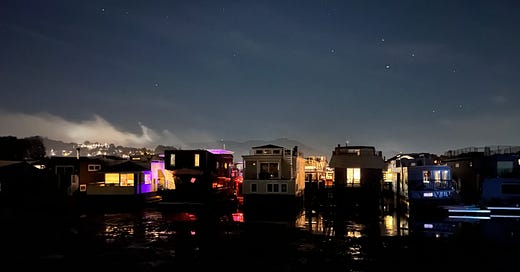








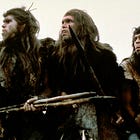
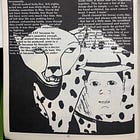


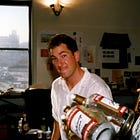

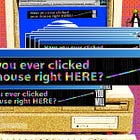

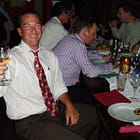
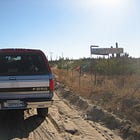

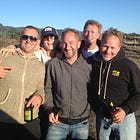

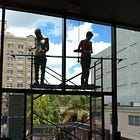

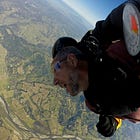
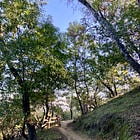






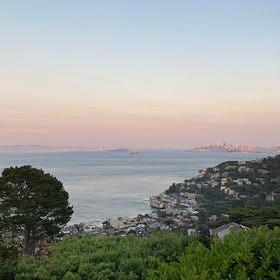
Thank you for sharing this. Looking forward to reading your book.
Many parts of your story resonate deeply within me and reflect almost comically parallel stories. Ordinary, indeed!
I like to interpret these increasingly common stories of men moving from disconnection, trauma, and strategy toward wholeness, centeredness, belonging and healing as the earth remediating its soil.
Glad to be on this journey with you, in our disparate ways.
Blessings on your path.
Engaging and meaningful prose. Thank you for going on your journey and sharing it with me and all of us. May we each find our unvarnished truth and get to the multitude and varied loves that are meant for us to live out. Keep Going. I am with you.